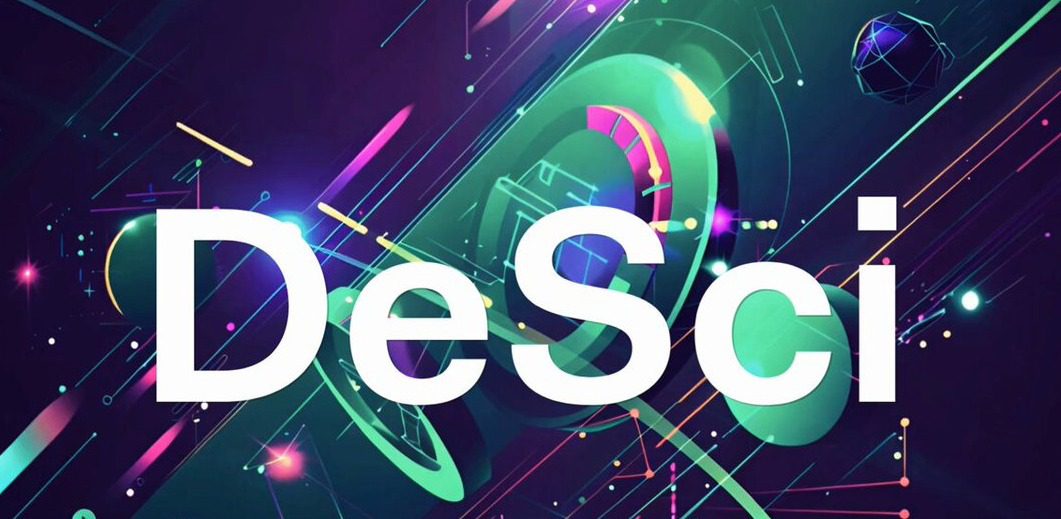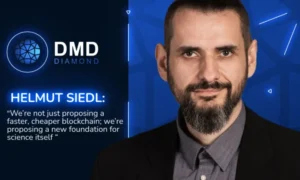Welcome to this mini-guide showcasing the most impactful projects in the world of DeSci (Decentralized Science).
Although still a relatively new movement, DeSci is quickly becoming essential in saving today’s healthcare systems and revolutionizing science as we know it. This guide will give you a clearer picture of this Web3-powered field, one that’s sure to define how future generations engage with science and health.
DeSci Offers a New Approach to Science
Science continues to make progress through discoveries—but it could go much faster.
Why? Because today’s scientific ecosystem is largely centralized. Research lies in the hands of a few powerful players (governments, corporations, academic publishers), raising questions around governance, access, and transparency.
DeSci aims to fix that. It promises a transparent, collaborative, and community-driven approach to science—where research results are open and accessible to any scientist, institution, or individual who needs them.
The ultimate goal: accelerate scientific and medical progress, improve global health, and reduce healthcare costs. A virtuous circle in motion.
DeSci reinvents the way we fund, govern, and share science, through:
- DAOs (Decentralized Autonomous Organizations) to fund research initiatives
- Tokenized intellectual property and open-access publications with built-in incentives
- EHRs (Electronic Health Records) connected to citizen-led communities
So, where does the movement stand in 2025?
Who are the key players and what are they actually doing?
Here’s a detailed look at the Top 5 DeSci projects transforming science in 2025 and 2026—with real funding, open portfolios, operational calls for proposals, and active platforms.
- VitaDAO — The Longevity DAO Funding and Tracking Research
What it does:
VitaDAO is a DAO fully focused on longevity science. It identifies translational research opportunities and funds them via Web3 mechanisms, maintaining a public portfolio of its projects. Millions of dollars have already been deployed, with over 20 projects funded transparently.
How it works:
Researchers apply, a dealflow team evaluates proposals, and the community votes to allocate funds. Ongoing project updates are shared via blog posts and governance forums. The site displays metrics on deployed funds, projects, and community participation.
Why join:
If you’re fascinated by longevity, open research funding, and IP transfers from academia to biotech, VitaDAO is a prime DeSci hub to engage with.
- Galeon — The Atlantis DAO Uniting Patients and Providers via a Single EHR
What Galeon does:
French project Galeon has one mission: accelerate scientific research by standardizing and securing hospital data. Through its robust EHR software, it creates a reliable foundation for Population Health Management and proactive care.
On top of this, Galeon builds a community-driven layer with its DAO and gamified platform Atlantis. Here, patients, providers, and contributors can participate in research and value-sharing via the $GALEON token—a true bridge between hospitals, caregivers, patients, and citizens.
How it works:
Galeon’s EHR uses AI and blockchain to structure and secure sensitive medical data. Deployed in nearly 20 French hospitals, it ensures interoperability between institutions.
Its proprietary tech allows decentralized AI training on vast amounts of anonymized data.
Meanwhile, Atlantis brings together a community of “Pioneers” engaging in quests, project support, and governance.
Why join:
If you care about hospital interoperability, medical AI, or grassroots DeSci from the patient’s bedside—and want to support structured research while safeguarding data privacy—Galeon is for you.
- Molecule — The IP-NFT/IP-Token Infrastructure Powering DeSci
What they do:
Molecule offers the leading infrastructure for tokenized Intellectual Property (IP).
It wraps patents, datasets, and license agreements into IP-NFTs and can fractionalize them into IP-Tokens, making it easier to finance, govern, and transfer research rights.
This framework is already used by many BioDAOs (like VitaDAO and AthenaDAO).
How it works:
Molecule made history in 2021 with the first IP-NFT transferred on-chain—a biopharma license agreement acquired by VitaDAO.
Since then, Molecule has released multiple iterations (IP-NFT v2) and documented new partnerships, solidifying its status as a DeSci infrastructure pioneer.
Why join:
If you’re interested in tokenizing research IP, building science asset markets, or enabling community-driven governance of scientific outcomes.
- ResearchHub — A Token-Powered Economy for Open Publication and Reviews
What it does:
ResearchHub is building a platform for open publishing and peer review, where contributions (summaries, peer reviews, bounties, DOIs) are incentivized via the RSC token.
Its mission: accelerate the publication and validation of reproducible science, while rewarding reviewers and enabling microgrants.
How it works:
Users create bounties (e.g., “peer review this preprint”) and earn RSC tokens based on public payout criteria. All token usage is documented and transparent, and activity is reported via the platform’s foundation.
Why join:
If you value open science, paid peer review, and direct funding linked to real scientific tasks—ResearchHub offers a pragmatic, incentive-aligned approach.
- AthenaDAO — The DeSci DAO for Women’s Health Research
What it does:
AthenaDAO focuses DeSci funding on women’s health (e.g., reproductive longevity, ReproTech). It has funded its first IP-NFT and frequently issues calls for proposals, with clear documentation via Substack, press kits, and its website.
How it works:
Projects are selected via open calls (e.g., Cohort 4 on ReproTech), voted on by the DAO, and funded through grants or IP-NFTs. Quarterly reporting ensures transparency.
Its initial phase saw over $250,000 in aggregated financial commitments.
Why join:
If you’re passionate about women-centered biomedical research, reproductive health, and bringing open innovation to historically underfunded domains.
These five projects are at the forefront of DeSci, shaping a new scientific ecosystem that’s more inclusive, open, and effective.
Many more are emerging, and as funding grows, the dream of decentralized science is becoming a tangible, collective reality.































